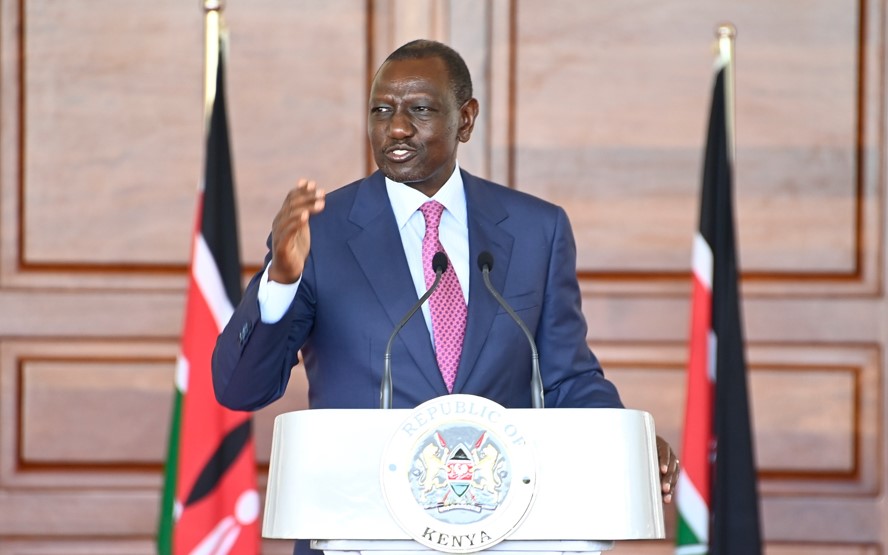Lobby group fights Ruto's order to transition state agencies to eCitizen within a week

The lobby group argues that the directive violates procedural fairness, disrupts agency operations, and undermines constitutional principles.
Kituo Cha Sheria has filed a petition in the High Court to challenge President William Ruto's directive requiring 34 state agencies to transition to the eCitizen payment platform within a week.
The lobby group argues that the directive violates procedural fairness, disrupts agency operations, and undermines constitutional principles.
More To Read
- Tough decisions stabilised the economy, saved Kenya from shame – Ruto
- Ruto and Oburu strengthen UDA-ODM alliance after by-election win
- Ruto unveils Sh400 billion mega dam plan to turn North and Coast regions into Kenya's new food basket
- Ruto says 15,000 jobs on the horizon following launch of landmark highway expansion
- Ruto says Kenya can attain first-world status within three decades
- Petition filed to stop multi-billion Rironi–Nakuru–Mau Summit road project
In its petition, Kituo Cha Sheria criticised the one-week deadline issued by the president, claiming it would divert resources from critical administrative functions, thereby affecting service delivery.
"The directive undermines the principles of good governance, transparency, and accountability as enshrined in the Constitution," the group said.
The lobby group and Hillary Mokaya, who is part of the petition, argue that the directive lacks transparency and legal force. Mokaya said the directive disregards established legal and administrative procedures, violating constitutional principles of good governance and public trust.
The group is seeking an order restraining the government and the affected agencies from implementing the directive. It contends that the directive contravenes public service values, including ethical standards, efficient use of resources, and accountability.
Mokaya further argued that threatening the heads of non-compliant agencies with job losses constitutes an abuse of power and undermines the security of the tenure of public officers. He also faulted the government for failing to establish a lawful and transparent process for implementing the directive, creating uncertainty and anxiety.
Kituo Cha Sheria highlighted the lack of public participation and an appeal mechanism for those directly or indirectly affected by the directive. They claim the government’s failure to consult stakeholders before issuing the directive renders it unlawful.
The eCitizen platform, developed in January 2023, charges a nominal access fee of Sh50 per transaction, except where waived by the Treasury Cabinet Secretary.
The lobby group argued that requiring agencies such as the Independent Policing Oversight Authority, Consolidated Bank of Kenya, and others to use the platform violates their operational independence and accountability structures.
The group emphasised that some agencies, like IPOA, operate independently and are not subject to interference by any office, including the president. They maintained that these agencies’ boards and commissions are responsible for managing their assets and finances.
Kituo Cha Sheria also raised concerns over requiring state-controlled banks like the Consolidated Bank of Kenya to deposit customer funds into a gazetted pay number. They argued this is illegal as the eCitizen platform lacks a Central Bank of Kenya licence to accept public deposits.
Additionally, the petition noted that members of the public who cannot access the internet or afford the necessary infrastructure would face exploitation or exclusion from accessing government services. This, they argued, violates citizens' right to equitable access to public services.
The High Court is expected to address the matter as the debate over the legality and impact of the directive continues.
President Ruto, during a November 28 address, accused state agencies of bypassing the eCitizen platform in favour of alternative payment methods, which he claimed facilitated corruption and weakened accountability. The president directed all agencies to ensure that payments and services were processed exclusively through eCitizen within seven days.
Top Stories Today













































